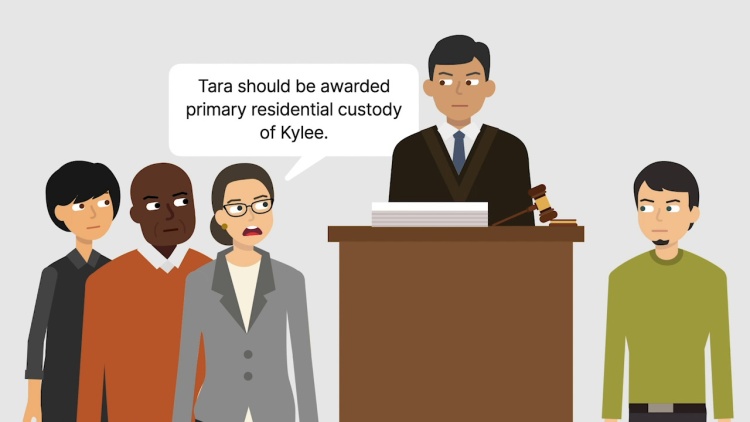Ford v. Ford
Florida District Court of Appeal
700 So. 2d 191 (1997)
- Written by Brittany Frankel, JD
Facts
Tara Ford (plaintiff) sought a divorce from Jay Ford (defendant) due to domestic violence. The six-day dissolution hearing centered around the issue of custody of the Fords’ child, Kylee. Several witnesses provided testimony corroborating Tara's allegations of domestic violence, including a court-ordered custody evaluator. The custody evaluator submitted a thorough report to the trial court detailing the domestic disputes and recommended that Tara should have primary custody, because she was more emotionally stable and would provide a more stable home life for Kylee. Jay told numerous inconsistent stories regarding his past. For example, evidence showed that on one occasion Jay took Tara's car to prevent her from transferring Kylee to him for visitation and then used that incident as evidence to prove that Tara was withholding Kylee from him. Nevertheless, the trial court found that Tara manipulated visitation and that the mental health factor favored Jay. The trial court also found that under the friendly parent statutory provision, Jay was more likely to encourage a close continuing relationship between Tara and Kylee. Thus, the trial court ordered that Tara and Jay share parental responsibility of Kylee, but awarded primary physical custody to Jay. Tara appealed.
Rule of Law
Issue
Holding and Reasoning (Polen, J.)
What to do next…
Here's why 907,000 law students have relied on our case briefs:
- Written by law professors and practitioners, not other law students. 47,100 briefs, keyed to 996 casebooks. Top-notch customer support.
- The right amount of information, includes the facts, issues, rule of law, holding and reasoning, and any concurrences and dissents.
- Access in your classes, works on your mobile and tablet. Massive library of related video lessons and high quality multiple-choice questions.
- Easy to use, uniform format for every case brief. Written in plain English, not in legalese. Our briefs summarize and simplify; they don’t just repeat the court’s language.





